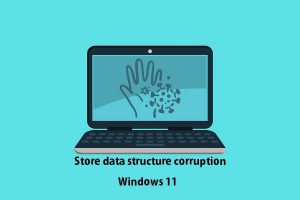In the fast-paced world of e-commerce and supply chain logistics, real-time order tracking and monitoring are no longer luxury features but necessities. Customers demand visibility into the journey of their purchases, and businesses need to proactively manage their inventory and shipments. This is where the Internet of Things (IoT) emerges as a game-changer.
The IoT Revolution in Order Management
The IoT, a network of interconnected physical objects embedded with sensors, software, and connectivity, has the potential to transform how businesses manage their orders. By seamlessly integrating IoT devices into various stages of the order fulfillment process, businesses can gain real-time insights, enhance operational efficiency, and deliver exceptional customer experiences.
Real-Time Order Tracking: A Customer-Centric Approach
One of the most significant benefits of IoT integration is the ability to provide customers with real-time order tracking. IoT sensors attached to packages or shipping containers can continuously transmit location data, allowing customers to track their orders in real-time. This level of transparency fosters trust and reduces anxiety associated with the waiting period.
Moreover, IoT-enabled tracking can provide estimated delivery times based on real-time data. This eliminates the guesswork for customers and empowers them to plan their schedules accordingly. By proactively informing customers about any potential delays or disruptions, businesses can manage expectations and prevent dissatisfaction.
Enhanced Inventory Management: Proactive and Efficient
IoT integration also revolutionizes inventory management. IoT sensors embedded in warehouses or storage facilities can track inventory levels in real-time. This enables businesses to monitor stock levels, identify potential shortages, and automate replenishment orders. By preventing stockouts and overstocking, businesses can optimize their inventory levels, reduce carrying costs, and improve cash flow.
Furthermore, IoT sensors can monitor the condition of inventory, especially for perishable or sensitive goods. This enables businesses to identify any potential damage or spoilage early on and take corrective action. This proactive approach prevents losses and ensures that customers receive high-quality products.
Streamlined Logistics: Optimized and Agile
IoT integration also has a profound impact on logistics operations. IoT sensors attached to vehicles or shipping containers can transmit real-time data on location, speed, temperature, humidity, and other environmental conditions. This allows businesses to monitor the movement of goods, identify potential delays or disruptions, and proactively take corrective action.
For instance, if a shipment is delayed due to traffic congestion, businesses can notify customers in advance and explore alternative delivery routes. Similarly, if the temperature of a refrigerated container deviates from the desired range, businesses can take immediate action to prevent spoilage. This level of visibility and control empowers businesses to optimize their logistics operations, reduce transit times, and enhance customer satisfaction.
Read More Also: Why is It Important to Learn About Cybersecurity?
Data-Driven Insights: Informed Decision Making
The vast amount of data generated by IoT devices provides businesses with valuable insights into their order fulfillment processes. By analyzing this data, businesses can identify patterns, trends, and bottlenecks. This empowers them to make informed decisions, optimize their operations, and continuously improve their order management capabilities.
For example, by analyzing historical data on shipping routes and transit times, businesses can identify the most efficient routes and carriers. Similarly, by analyzing data on customer preferences and order patterns, businesses can tailor their product offerings and marketing strategies.
Security and Privacy: Protecting Sensitive Data
While IoT integration offers numerous benefits, it is essential to address security and privacy concerns. IoT devices generate and transmit sensitive data, such as customer information, order details, and location data. Businesses must implement robust security measures to protect this data from unauthorized access, breaches, and misuse.
This includes encrypting data, implementing strong authentication protocols, and regularly updating software and firmware. Businesses must also comply with relevant data protection regulations and ensure transparency in their data collection and usage practices.
The Future of Order Management: IoT-Powered Innovation
The integration of IoT into order management is still in its early stages, but its potential is undeniable. As IoT technology continues to evolve and mature, we can expect even more innovative applications and use cases to emerge.
For instance, we might see the use of drones or autonomous vehicles for last-mile delivery, further enhancing speed and efficiency. We might also see the use of augmented reality (AR) or virtual reality (VR) to provide customers with immersive order tracking experiences. The possibilities are endless, and the future of order management is undoubtedly IoT-powered.
Conclusion
IoT integration has the power to revolutionize real-time order tracking and monitoring. By providing real-time visibility, enhancing inventory management, streamlining logistics, and generating data-driven insights, IoT empowers businesses to deliver exceptional customer experiences and optimize their operations. As IoT technology continues to advance, we can expect to see even more innovative applications and use cases emerge, further transforming the way businesses manage their orders.
Remember, the key to successful IoT integration is to choose the right devices, implement robust security measures, and analyze the data effectively. By doing so, businesses can unlock the full potential of IoT and gain a competitive edge in the fast-paced world of e-commerce and supply chain logistics.





